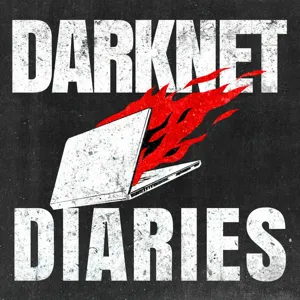Podcast Summary
Ransomware attacks on healthcare companies are common and costly: 369 successful cyberattacks on US healthcare companies in 2020, Ryceda gang demands ransoms, data value, vulnerability exploitation, financial losses, multi-factor authentication, regular software updates, cybersecurity measures
Ransomware attacks, like the one experienced by Lurie Children's Hospital in Chicago, are becoming increasingly common, especially for healthcare companies. According to the Identity Theft Resource Center, there were 369 successful cyberattacks on healthcare companies in the US last year, making it the sector with the most compromises. Hackers, like the Ryceda gang, demand ransoms from companies to restore their operations after encrypting their data. The reasons behind this surge in hacking include the increasing value of data, the ease of exploiting vulnerabilities, and the profitability of ransomware attacks. Healthcare companies are attractive targets due to the sensitive nature of their data and the potential for significant financial losses if their systems are down. While there are solutions, such as multi-factor authentication and regular software updates, it's essential for companies to remain vigilant and invest in robust cybersecurity measures.
Protecting Computer Systems: Addressing Software and Human Factors: In 2023, hacking attacks doubled, highlighting the importance of securing both software and human elements to protect computer systems.
Protecting a company's computer system against hackers requires addressing both the software and human factors. The software, or the fence in the analogy, needs to be strong and free of vulnerabilities. However, hackers also target humans, or the gate in the analogy, by sending phishing emails and other social engineering tactics to trick employees into revealing passwords or clicking on malware. These attacks are becoming more successful due to the increasing availability and ease of use of hacking tools. Companies are responding by training their employees on how to identify and avoid these threats. In 2023, the number of compromises, where personal information is accessed by unauthorized individuals, almost doubled compared to the previous year. The technology used by hackers is improving, making it easier for even novice hackers to carry out attacks. Therefore, it's crucial for both individuals and organizations to stay informed and take necessary steps to secure their systems against these threats.
Healthcare firms are popular targets for cybercriminals due to weaker security measures: Healthcare companies spend less on cybersecurity than other industries, making them attractive targets for cyberattacks with severe consequences.
The cybersecurity threat landscape, particularly for healthcare companies, is more sophisticated and profitable than ever before. Hackers can easily create convincing phishing emails using artificial intelligence, making it accessible for anyone to launch cyberattacks. Healthcare firms are becoming increasingly popular targets due to their weaker security measures. Unlike financial institutions where customers can easily switch after a breach, healthcare customers face significant challenges in finding new providers, making them less likely to switch. Healthcare organizations typically spend only 5-6% of their revenue on cybersecurity compared to financial services and technology companies that spend twice or even three times that amount. This lack of investment in cybersecurity makes healthcare companies attractive targets for cybercriminals who make money by freezing their systems and demanding ransom payments. The consequences of a cyberattack on a healthcare network can be severe, making the decision to invest in robust cybersecurity a complex one that often falls above the pay grade of individual consumers.
Pressure on healthcare companies from data extortion attacks: Hackers are increasingly targeting healthcare companies for financial gain through data extortion, leading to operational disruptions, HIPAA fines, class action lawsuits, and individual patient extortion. Advanced technologies like bots, automated programs, and AI make attacks more frequent and profitable.
The value of data stolen in healthcare cyberattacks has become a major motivator for hackers, leading to a greater emphasis on data extortion rather than just ransomware attacks. This trend is putting immense pressure on healthcare companies, as they face not only operational disruptions but also the threat of HIPAA fines, class action lawsuits, and individual patient extortion. With the use of advanced technologies like bots, automated programs, and AI, hackers can now target individuals as well as large organizations, increasing the potential for financial gain. Despite these challenges, healthcare companies are making efforts to improve their cybersecurity defenses, but it's an ongoing arms race that requires significant resources to keep up. The consequences of a successful attack can be severe, with one gang reportedly netting over $100 million from hospitals and other institutions.
Cybersecurity Challenges in Healthcare Sector: Healthcare organizations must invest significantly in cybersecurity to protect assets, employees, and customers due to increased pressure and potential consequences of neglect.
Maintaining cybersecurity in today's interconnected world is a significant challenge for enterprises, especially in sectors like healthcare. The task involves keeping a vast inventory of assets and software updated and secure, including those used by employees, partners, and suppliers. This undertaking requires a substantial investment of time, focus, and money. According to John Gunn, the CEO of a cybersecurity firm, the approach taken by finance companies, which spend whatever it takes to secure their systems, is expected to become the norm in healthcare due to increased pressure from various sources, including patients, governments, and potential lawsuits. Despite this, specific spending figures from healthcare institutions like Lurie Children's Hospital in Chicago were not disclosed for this discussion. The consequences of neglecting cybersecurity can be severe, as demonstrated by the impact on communities in the Congo due to the mining of cobalt, a mineral essential for modern technology. It is crucial for businesses and organizations to prioritize cybersecurity investments to protect their assets, employees, and customers.







